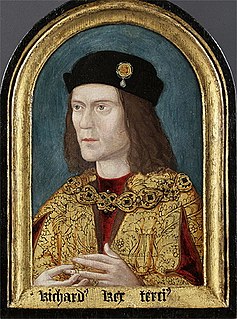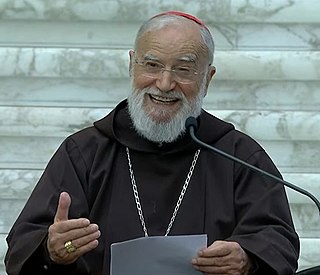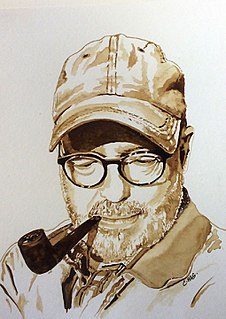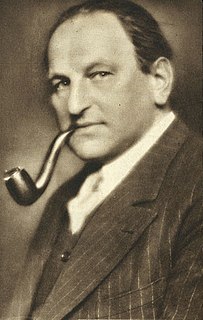A Quote by Richard III of England
With relish, Thomas More thus sketches Richard's character: He was close and secret, a deep dissembler, lowly of countenance, arrogant of heart, outwardly companionable where he inwardly hated, not hesitating to kiss whom he thought to kill.
Related Quotes
It is true that not even Christ is seen, but he exists; he is risen, he is alive, he is close to us, more truly than the most enamored husband is close to his wife. Here is the crucial point: to think of Christ not as a person of the past, but as the risen and living Lord, with whom I can speak, whom I can even kiss if I so wish, certain that my kiss does not end on the paper or on the wood of a crucifix, but on a face and on the lips of living flesh (even though spiritualized), happy to receive my kiss.
Emulation, even in brutes, is sensitively "nervous." See the tremor of the thoroughbred racer before he starts. The dray-horse does not tremble, but he does not emulate. It is not his work to run a race. Says Marcus Antoninus, "It is all one to a stone whether it be thrown upward or downward." Yet the emulation of a man of genius is seldom with his contemporaries, that is, inwardly in his mind, although outwardly in his act it would seem so. The competitors with whom his secret ambition seems to vie are the dead.
As we are concerned with what others think of us, so we are anxious to know all about them; and from this arise the crude and subtle forms of snobbishness and the worship of authority. Thus we become more and more externalized and inwardly empty. The more externalized we are, the more sensations and distractions there must be, and this gives rise to a mind that is never quiet, that is not capable of deep search and discovery.
I'm beginning to believe that Killer Illiteracy ought to rank near heart disease and cancer as one of the leading causes of deathamong Americans. What you don't know can indeed hurt you, and so those who can neither read nor write lead miserable lives, like Richard Wright's character, Bigger Thomas, born dead with no past or future.






































